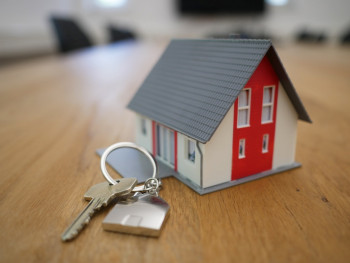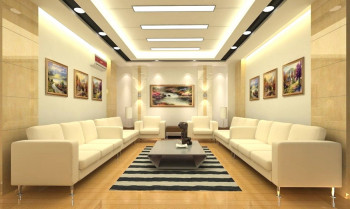The Advantages and Disadvantages of Vinyl Flooring in 2020
So you are not familiar with vinyl flooring, let me give you a quick description.
1. What is Vinyl Flooring
Vinyl Flooring (noun): large, continuous flexible sheets that are completely impermeable to water and other liquids. Unlike vinyl flooring tiles, vinyl sheet flooring comes in long, interlocking planks.
Typically this type of flooring is used in kitchens and bathrooms but is rapidly taking over the rest of the house as well. It is a synthetic cousin of linoleum with the base layer consisting of fiberglass then coated in PVC vinyl and a plasticizer. Take a look below for some images if you still can't have a picture of it in mind.


2. Pros and Cons
Now let's dive into the pros and cons of vinyl flooring:
2.1. Advantages
Following are the advantages of vinyl flooring.
2.1.1. Cost (super inexpensive)
Compared to other flooring options like hardwood, laminate, and tiles, vinyl flooring is a fraction of the price. Along with the price of the materials and labor, it is a very durable product that requires little to no maintenance. It is very easy to clean and maintain with simple household cleaning products.
2.1.2. Easy to Maintain and Install
So it's not news to anybody that contractors and construction workers can charge a lot of money, but with vinyl, flooring quotes are typically cheaper and even DIY. Also, they are easy to clean and the overall appearance does not significantly change over time.
2.1.3. Variety of Colors
The aesthetic and flow of decor, furniture, and construction of the house are very important. With a wide variety of colors, tones, and grains it is easy to match with anything type of vibe a homeowner is going for.
2.1.4. Reduces Noise
Since it is a thin flat sheet, it reduces the chances of creaks and acts as a barrier between the original flooring or base and feet of humans. Noise from one floor to another floor does not get transferred as easily as creaky wood floors might transfer noise.
2.1.5. Easy Under the Feet
Speaking of feet, since vinyl flooring acts as a continuous sheet of flooring, it is smooth and has no texture most of the time. Since it is not a hard surface being stepped, the pressure being placed back on human feet is soft and comfortable. Also, vinyl is not affected by temperature so you won't yourself step on a cold floor in the winter. It can handle heavy foot traffic and is not prone to cracks like tiles may be.
2.1.6 Water-Resistant
With a well-installed vinyl floor, water penetration is close to impossible. Since liquid penetration is a hard task, this type of flooring is a good choice for kitchens, bathrooms, basements, and high-moisture areas.
2.1.7 Stain-Resistant
As mentioned before these floors are easy to clean and maintain. There is a clear coating between the actual floor and any spills or stains that are waiting to happen.

2.2. Disadvantages
While there are some advantages of vinyl flooring, it also has a few cons.
2.2.1. Not Very Heavy Duty
While it holds up well to foot traffic, it does not hold up well to heavy loads. Vinyl flooring could easily get scratched or damaged if something is slid or pushed on it. It can also be easily damaged by sharp objects.
2.2.2. Possibility of Fading
Even though the chances are not too high, extreme exposure to sunlight could cause color fading. This can change the appearance of the vinyl and become a disliked choice by the homeowners.
2.2.3. Not the Best in Extreme Weather Temperatures
Whether the temperature is too high or too low, there is a high chance the vinyl will be ruined. It can shrivel, come apart, transfer, or even peel off. Due to the fact that it is synthetic and part plastic, there is a high chance of this happening, which is why it is not recommended for use outdoors or in extreme temperature areas like a garage or sunroom.
2.2.4. No Resale Value
Since it is a cheaper product, it does not add value to the house. It may not exactly lower the value of a house, it can steer potential buyers from being interested in it. This type of flooring might not be a house flippers' dream.
2.2.5. Not Eco-friendly
This product is difficult to recycle and hard to get rid of. Since it has a shorter lifespan than most flooring products, it needs to be changed out more frequently. With this being said it is harder to replace and the whole process just seems like a disaster waiting to happen.
2.2.6 Chemical Stains
Vinyl flooring cannot uphold the wear and tear of common chemical stains like rubber soles of a shoe scuffing the floor and leaving a permanent mark or causing discoloration. The bottom side of household mats can also cause a reaction if they have rubber.
2.2.7 Discoloration and Yellowing
Some low-quality vinyl flooring can yellow and discolor with age. Some causes of this can be direct sunlight, dirt, and even the wear and tear of the clear coating can cause this yellowing and discoloration.

Flooring can be a huge decision for homeowners so making the right decision is extremely important. Vinyl flooring is a newer alternative to other options present in the past, but many people are choosing this for various reasons stated above. It is an extremely personal decision that needs to be well thought out before execution or lack thereof. Do some research and have some consultations with construction workers before making any type of decision.

Content












Join our growing community
Subscribers
Youtube
Twitter
Instagram
Facebook